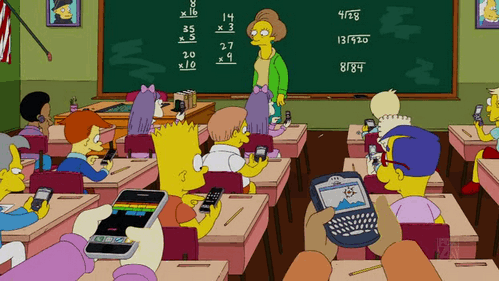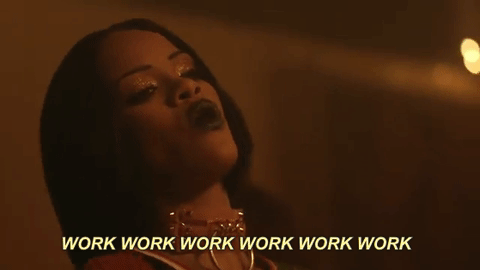
I’ve just finished school. What’s this election got to do with me?
You might have heard there’s another election happening on the 8th of June. But with so much info being thrown around, we’re suffering from a serious case of TMI.
We’re trying to make it a little simpler. We've trawled through all the information we can get on the top five parties (thank us later – no seriously, do – this took ages) to try and make sure you've got the facts you need to make a decision.
This one’s for people just out of school. You might be thinking of going to uni or doing an apprenticeship. Or you could be trying to make ends meet in a part time job. But if that doesn’t quite fit your situation, take a look at the rest of our coverage for some other scenarios that might match you better.
Education

Have you thought about what's next? Do you think you'll stay in education? Go to Uni? Do an apprenticeship? Who wins this election could have a big impact on your choices.
The Labour Party has promised that it will bring back something called the Educational Maintenance Allowance (EMA) which is basically a small grant for people in further education – A-levels, BTECs, etc – to help cover the costs of staying in school post-16. Labour says it will pay for this through raising the amount of tax businesses have to pay in corporation tax. Labour's also said that it will double the amount of completed apprenticeships by 2030, cover apprentice's travel costs and increase participation of people from minority backgrounds, with disabilities, women, care leavers, veterans and more.
The Scottish National Party is also pro-EMA – they've still got it in Scotland, but the SNP said it will keep it going and add further student bursary funding too. It's pretty pro-apprenticeships, and will encourage smaller businesses to take on apprentices.
The Conservatives announced a new qualification program for technical training in March – T-Levels. It's designed help the UK catch up with other countries on promoting skills-based training, rather than just promoting traditional academic university routes. Technical students will be given 50% more hours training, and a three month work experience placement. And all students who take up “higher level technical study” will receive a maintenance loan, just like university students.
If you're thinking about uni, have you thought about how much it'll cost? Will you be able to afford it? Tuition fees are a pretty big sticking point for the major parties.
Labour says it wants to work towards free education for everybody, from 'cradle to grave', and has promised to outlaw tuition fees. The Greens are proposing the same thing.
The Lib Dems have said that they’re hoping they’ll be forgiven for going back on their promise not to raise tuition fees in 2010. They're now speaking out against the continued rise in fees that Conservatives have been rolling out. They say they will ensure there's no freeze on the minimum salary you need to earn before you have to repay your loan, and said it will encourage universities to make sure people from all backgrounds have access to education.
The Conservatives are sticking to the idea that the fee hike was a good thing, and are likely to keep increasing the rate on student loans. You can take out a loan to pay the fees and your maintenance, it'll just be a much bigger one than it would have been a few years ago.
Work

Biggest news for you from Labour: it wants to get rid of the lower minimum wage rate for under 25s and just have one minimum wage for everyone. The plan is to raise the legal minimum wage to £10 an hour by 2020. The Green Party has talked about the same idea too.
The Conservatives aren't so radical but minimum wage is going to keep rising if they stay in power, they won't commit to a figure, but say that by 2020 the minimum wage will be at 60 per cent of the average wage in the UK, and then will keep rising in line with the average.
The SNP wants to extend the living wage to more people in Scotland, and give young people aged 18 to 24 who are looking for work a grant of £100 (or £250 if you're a parent) to tide you over.
The Lib Dems have said they will encourage employers to give everyone a decent living through a 'kitemark' system. This will encourage employers to pay a living wage, avoid unpaid internships and encourage diversity across the business.
The big policy from the Green Party on work is the idea of a three-day weekend. Which might sound a little crazy, but apparently wouldn't actually harm our total 'productivity' or output.
But is there a job waiting? One of the biggest cat fights in politics is about who's creating the most (and best) jobs
The Conservatives say that they're all about "secure, high paying jobs in a strong economy" (they're really, really keen on using this word 'strong' as much as possible this campaign...) They say they want to bring "jobs of the future" to the UK and argue their policy of cutting corporation tax will make the country more attractive for businesses, which will then in turn create jobs. The current government does have a strong (sorry) track record of creating lots and lots of jobs – but they tend to be more on the low-pay, no-contract side of things.
Labour wants to “deliver investment and skills across the whole country” to make sure that job creation is more balanced and not just focused in the South East. It also wants to outlaw unpaid internships, which it says will help make sure that the people getting the best experience aren't just the people who can afford it.
Healthcare
The Lib Dems have promised to treat mental health problems as equal in the NHS, said they will support the introduction of a regulated cannabis market (basically means legalization) and said they will treat drug use as a health issue not a criminal one. They've said they'll raise more money for the NHS by putting an extra penny on every pound everyone pays in income tax.
Labour has pledged £37bn for the NHS by 2022, which it says will be funded by tax raises for corporations. It's also said it'll stop the government from putting private companies in charge of running some parts of the NHS service – something called 'privatization' which the Conservatives have been doing quite a lot of. They've said they'll treat mental health issues equally in the NHS, and will fuse together the support services that exist for elderly and disabled people with the running of the whole health system.
The Greens are on side with these ideas as well, saying they want to take private companies out of the health system all together. So does the Scottish National Party.
The Conservatives say they'll increase funding to the NHS by £8 billion over the next five years. They will also stop people who are not resident in the UK using the NHS for free, though say it will still be at a 'competitive' rate when compared with the health insurance you pay to access healthcare overseas. There's not much mention in the manifesto about the government's tactic of allowing private companies to privde some NHS services.
Transport

Another public service Q: how do you get around? When your train or bus is delayed, who do you blame? And how much does it cost to get from A to B?
Labour has said it will bring the railways under government control, which would mean all the different rail networks would have one owner – the government. It has also said it will expand the UK’s bus network. Greens are (you guessed it) on the same page as Labour here, but they also want to put an immediate 10 per cent fare reduction in place, and start campaigns to get people walking and cycling more too.
The Conservatives definitely wouldn't be keen on the whole government-ownership idea – they've just decided to give private companies like Virgin and Southern some control over things like repair and maintenance alongside the government-owned Network Rail. Their main thing is pushing through HS2, a high speed rail from London to Manchester. They've pledged £1.1bn to improve local transport, and included a grand total of one line about cycle lanes.
The fun stuff

And what do you do in your spare time? Ever used the library to revise? Gone to a local theatre, or sports centre?
Labour wants to increase access to arts, culture and sports, and has said it will introduce a £1bn fund to improve access to cultural institutions for everyone.
The idea behind the Conservative arts cuts is basically just the 'free market' way of thinking – which just means that you believe things will be better quality and more efficient if they're paid for by whoever wants to pay for them in a 'free' exchange, rather than government-funded. They do still want to fund school sports, and keep museums free.
Brexit
It's the reason this general election was called in the first place, and whoever gets in is going to have to go through a loooong negotiating process. Whatever they decide is going to have some definite effects on Brits in the UK and across the EU. Here's what each party has to say on it:
A lot of Conservatives (including Theresa May) were anti-Brexit before, but they're now pretty solidly pro. Theresa May is taking a pretty tough approach to talks so far, saying "no deal is better than a bad deal" – but at the same time, their manifesto says they want to keep as many of the agreements that let the UK trade with the EU without any extra fees as possible. But however talks go, they'd definitely go ahead under a Conservative government.
The Lib Dems are on the opposite side of the spectrum – they're strongly against leaving the EU and say they'll do everything they can to protect the 'single market', which is the arrangement between EU countries where trade is made as simple as possible. They want another referendum when the deal is ready to give UK citizens a say on whether they're happy with it.
The Greens are on the Lib Dem side on this one, saying basically the same thing. So is the Scottish National Party – except they also want the Scots to have some kind of special arrangement with the EU after Brexit, seeing as the majority of Scots didn't want to leave in the first place.
Labour used to be pro-EU as well, but now they're kind of in a happy middle between the Lib Dems and the Conservatives – they want to make sure workers rights and access to the single market is protected, but they're against a second referendum.
If you're someone who makes their decision to vote based on how each party approaches the 'big issues' like poverty or inequality, climate change, or homelessness, rather than on the things that affect you directly, stay tuned for our piece next week comparing what each party has to say about those wider issues.
If you're someone who doesn't actually vote at all, because you don't think it matters – if that's the case, take a look at our video out next week about how governments link to your day to day.
We'll be updating these articles as more information becomes available.
If you enjoyed this take a look at the rest of our GE2017 coverage



